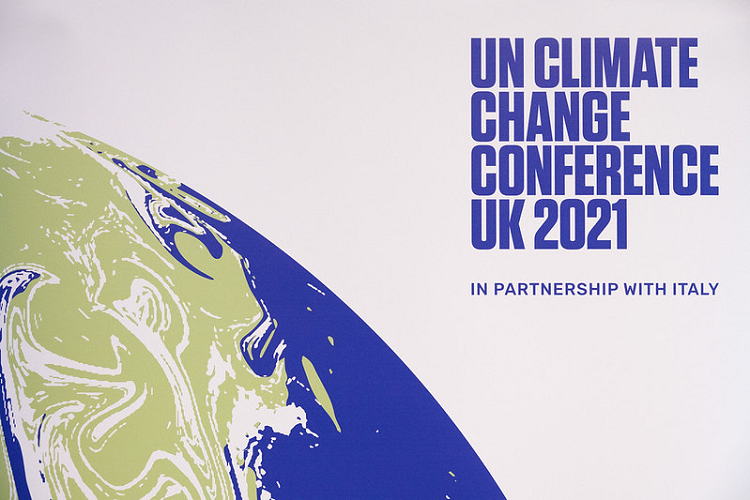COP26: Week One – The Story So Far
8 November 2021Tens of thousands of protesters filled the streets of Glasgow over the weekend, continuing to put pressure on those inside the walls of the SECC to figure out a way to avoid catastrophic climate change.
Although the protests rightly filled many papers and our television screens, there has also been significant announcements from within the conference over the past 7 days. Here is our breakdown of the important takeaways from the first week of COP26 in Glasgow.
-
Pledge to reduce methane
The Global Methane Pledge was launched in September as a joint EU and USA pledge to reduce methane emissions by 30% by 2030 from 2020 emissions. At COP26 this week over 100 more countries joined the pledge to reduce methane emissions, including the UK. Methane emissions globally according to the UN are from 3 main sectors agriculture (40%), fossil fuels (35%) and waste (20%) in the UK methane emissions are sourced from agriculture (44%), waste (36%), and Energy from fossil fuels (18%). The main focus of the pledge is set to be on the fossil fuel industry, and it is expected that the majority of the reduction can be easily achieved from that sector. However, with the UKs significant methane emissions from agriculture, this pledge, although non-binding, may put pressure on policymakers to focus energy on methane emissions from livestock.
-
Policy Reform in Agriculture
The UK government alongside the World bank and the Just Rural Transition set out pathways and action to support a transformation in our food systems to help adapt and mitigate climate change. This was supported by 150 governments, organisations and farms from all across the world. The UK government announced funding towards this mainly focused on helping farming transition in the global south however Scottish government pledged an additional 55 million towards the Nature Restoration Fund aimed at large scale multi year projects focusing on biodiversity and climate.
-
An end to deforestation
Over 100 nations have committed to ending deforestation by 2030; the countries that have signed up have over 85% of the world forests. The IPCC estimates that food and drink are responsible for up to 75% of deforestation globally and this deforestation occurs predominantly in the global south. Over 14 billion has been pledged to support land restoration where land has been degraded for agriculture or other activities and funding will focus on the global south. This could result in a change in supply chains over the next decade as industries move away from a model of deforestation, this may be particularly important where soya is concerned, over 75% of soya imported into Europe is estimated to be associated with deforestation.
-
Net zero transition Plans
The UK government has announced that it aims to be the worlds first Net-Zero aligned financial Centre. Included in this is that large UK firms and financial institutions will need to show how they are going to hit emissions reductions target with Net zero transition plans. These plans are set to become a requirement by 2024. Although this focus is on large companies and financial institutions, it will inevitably trickle down to farm businesses and increase the markets preference of low carbon activities, which is becoming more common in the food supply chain.
In terms of setting targets that will help ‘keep 1.5 alive’ the emissions commitments set out so far in Glasgow are closer to a 2-degrees warming although significant progress has been made this week. The hope is discussion this week and beyond will get closer and closer to a global commitment to 1.5 degrees warming and avoid catastrophic climate change for people in the Caribbean and other low lying island nations.
Séamus Murphy, SAC Consulting, for the Farm Advisory Service.
Sign up to the FAS newsletter
Receive updates on news, events and publications from Scotland’s Farm Advisory Service

